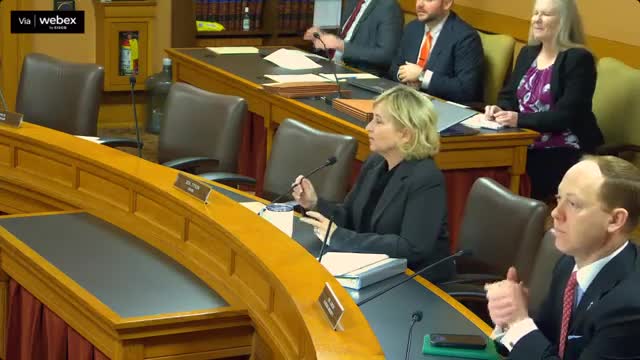Senate tax committee hears bill to extend Rural Opportunity Zone incentives five years
Get AI-powered insights, summaries, and transcripts
Subscribe
Summary
Senate Bill 69 would extend KansasRural Opportunity Zone workforce incentives for five years, continuing a $5 million annual appropriation that funds student loan repayment and a 100% state income tax credit; supporters urged reauthorization and suggested expanding or modernizing benefit tracks.
The Senate Committee on Taxation opened a hearing on Senate Bill 69 to extend the Rural Opportunity Zone program, which provides student loan repayment assistance and a 100% state income tax credit to eligible people who move to designated rural counties.
Supporters said the program remains a useful recruitment tool for rural employers and hospitals and asked the committee to reauthorize it for five years. "The Kansas Hospital Association ... believes the rural opportunity zone program has been a useful tool for Kansas hospitals in our industry when recruiting healthcare professionals to rural areas," said Chad Austin of the Kansas Hospital Association.
The bill would extend the two existing incentives for an additional five years. Trisha Purdon, director of the Office of Rural Prosperity, which administers the program within the Kansas Department of Commerce, told the committee the program is funded through a single $5,000,000 annual appropriation. She said the student loan repayment assistance provides $3,000 a year for five years and that the annual payment is split between local sponsors and the state. "The student loan repayment assistance program offers $3,000 a year for 5 years to apply towards a student loan of eligible individuals," Purdon said.
Why it matters: proponents said the incentives help rural hospitals, dealerships and other employers recruit and retain workers in counties that have lost population. The committee heard from health-care and business representatives who described both the program
Program details and eligibility: Purdon said the state has designated 95 counties as Rural Opportunity Zones and that all 95 counties offer the income tax credit feature and the student loan repayment component is offered in all 95 counties, while local sponsorship varies: "Currently 95 of the 95 eligible counties offer the student loan repayment assistance program. 44 counties offer county sponsorship of the program. 6 foundations now ... and 8 cities offer the sponsorship," she said. Purdon explained the state income tax credit covers 100% of a participant's state income tax liability for up to five years but includes an eligibility requirement that the taxpayer "must have been domiciled outside the state of Kansas for 5 or more years immediately prior to establishing their domicile in a rural opportunity zone." She added that the income tax credit is limited to the taxpayer's Kansas tax liability and that the program has an annual appropriation cap.
Several witnesses described how the two tracks operate differently. Amelia, a committee staff member who gave an initial overview, noted the student loan repayment program is administered through the Kansas Department of Commerce and that some counties and some employers do not participate, making eligibility "very individualized depending on location." Amelia and Purdon both said that the domicile requirement applies to the state income tax credit but may not apply to the student loan repayment program, meaning Kansas graduates who move back to an eligible rural county may be eligible for loan repayment even if they are not eligible for the income tax credit.
Stakeholder suggestions: witnesses urged the committee to consider modernizing or expanding benefit options beyond student loan repayment. Chad Austin and Debbie Bruner, chief executive officer of Mineola Healthcare, recommended adding optional tracks such as homebuyer down-payment assistance or childcare stipends and suggested a pre-employment stipend track. Bruner specifically asked the committee to reconsider a $10,000 earned-income limit that currently can disqualify recruits who receive pre-employment stipends: "Under the current structure, any financial support provided to recruits before their official start date is counted towards their income. And if it exceeds 10,000 per year, it disqualifies them from the RAS program," she said.
Amy Frieoff, human resources director for American Implement, testified as a user of the program and described how the tax credit influenced her decision to remain in Kansas after relocating. "The state tax credit has benefited me directly by helping to offset those expenses," Frieoff said.
Questions from senators focused on eligibility and whether Kansas residents who move from urban to rural counties could qualify for the income tax credit; several senators suggested the committee might explore widening eligibility to Kansans moving between counties. Amelia and Purdon said the income tax credit's domicile requirement currently requires five years outside Kansas, while the student loan repayment track may allow in-state returns to qualify depending on local participation.
Next steps: proponents urged reauthorization and potential amendments; the committee closed the hearing on SB 69 and moved on to other business.
